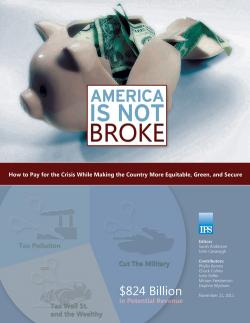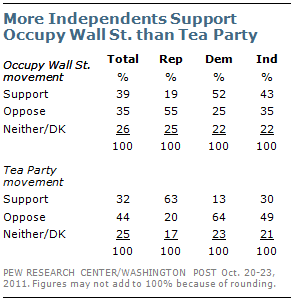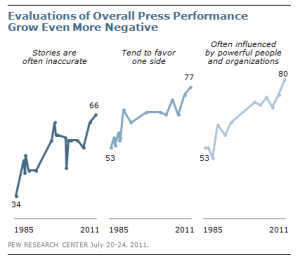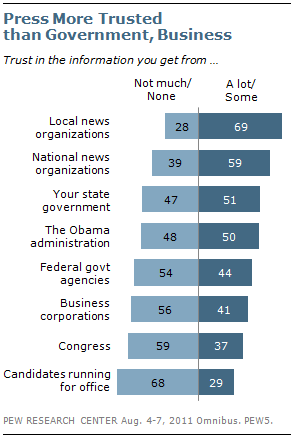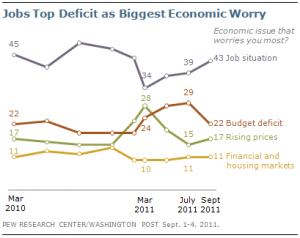From Wall Street Journal, September 14, 2011:
The Census Bureau released its annual report on Income, Poverty and Health Insurance Coverage in the United States today. Here are some quick bullet points:
–Median household income in 2010 was $49,445, down 2.3% from 2009 and down 6.4% from prerecession level.
–Median household income in 2010 was $49,445. That’s 7.1% lower (adjusted for inflation) than it was in 1999
–Median earnings for full time male worker in 2010 was $47,715. Adjusted for inflation, it was $48,245 in 1978.
–Median earnings for men who worked full-time year round was $47,715 in 2010, down 0.4%. For women it was $36,931, up 1.5%.
–Best off 5% of households (adjusted for household size) got 21% of income in 2010.
– Official poverty rate in 2010 was 15.1%, up from 14.3% in 2009, third consecutive annual increase
–In 2010, 49.90 million Americans (16.3%) without health insurance vs. 48.99 million (16.1%) in 2009.
–The fraction of foreign-born without health insurance in 2010 was more than double native-born population.
Wall Street Journal article

